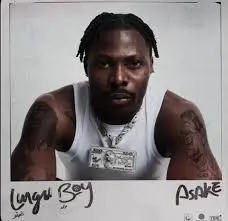A Nigerian non-governmental organization, the Socio-Economic Rights and Accountability Project (SERAP), has threatened legal action against the Nigerian Broadcasting Commission (NBC) over its decision to ban a new politically charged song by veteran rapper Eedris Abdulkareem.
The track, titled ‘Tell Your Papa’, directly criticizes President Bola Tinubu’s administration and is aimed at his son, Seyi Tinubu, who recently described his father as “the greatest president in Nigeria’s history.”
The song arrives amid growing public frustration over worsening economic conditions, rising inflation, and increasing insecurity under the current government.
Eedris Abdulkareem, known for his fearless commentary on political and social issues, used the track to question the sincerity of the Tinubu-led government, calling out the administration for failing to deliver on its Renewed Hope campaign promises.
In the song, the rapper urges Seyi Tinubu to “tell your papa” the truth about the struggles ordinary Nigerians face. He refers to Seyi’s recent Ramadan outreach tour in Northern Nigeria, suggesting it was a public relations move to salvage the family’s political reputation.
“You tour North, go chop Sallah meat, but wetin you tell your papa say dey happen for street?” Eedris raps in one of the verses.
The Nigerian Broadcasting Commission, however, swiftly clamped down on the song. In a memo dated April 9, 2025, the NBC labeled ‘Tell Your Papa’ as “Not To Be Broadcast (NTBB),” citing Section 3.1.8 of the Nigeria Broadcasting Code, which bars content considered to be of an “objectionable nature.”

The memo, signed by Susan Obi, the Coordinating Director of Broadcast Monitoring, emphasized that while the song had gained significant traction on social media, its message did not align with the Commission’s standards for responsible broadcasting.
Reacting to the NBC’s decision, SERAP issued a stern warning, stating that the ban was not only undemocratic but a violation of freedom of expression.
The organization took to social media on April 10 to issue a 48-hour ultimatum for the Commission to lift the ban or face legal action. “Silencing voices critical of the government through censorship is a dangerous attack on press freedom and the public’s right to know,” SERAP wrote.
“We will not hesitate to take legal action to defend the constitutional rights of Nigerians to free expression and dissent.”
SERAP’s statement also raised concerns about the increasing use of regulatory bodies to stifle artistic and political voices. “We have a duty to resist any attempt to suppress music that speaks to the people’s pain,” the group added.
According to SERAP, music has long been a vehicle for social commentary and political resistance, and banning songs like Eedris Abdulkareem’s not only undermines the democratic process but also disrespects the legacy of activism through art in Nigeria.
Despite the NBC’s directive, the ban is unlikely to deter Eedris Abdulkareem, whose musical career has been marked by bold and unfiltered criticism of socio-economic injustice.
From his 2004 hit ‘Jaga Jaga’, which took aim at corruption and decay in the Nigerian system, to his current work, the rapper has remained a consistent voice of protest.
As the debate over censorship, political accountability, and freedom of expression intensifies, the controversy surrounding ‘Tell Your Papa’ is shaping up to be yet another flashpoint in Nigeria’s ongoing struggle between authority and artistic expression.










